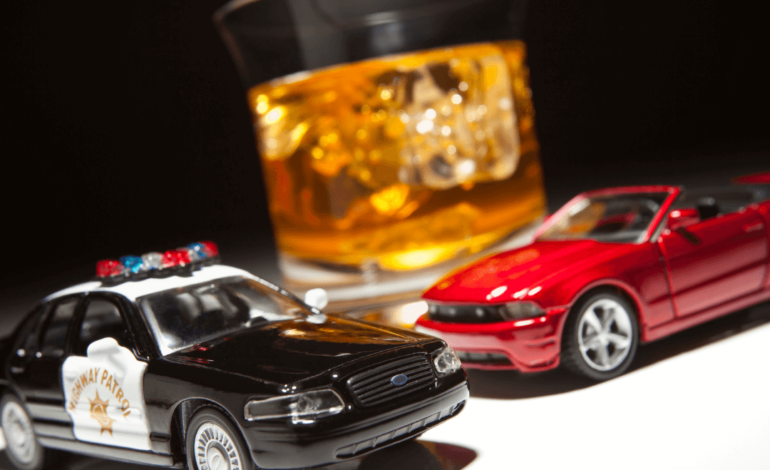Drunk driving may or may not be a sign of an alcohol use disorder, but it is a sign of poor judgment and decision-making when under the influence of alcohol. Alcohol is the most commonly used mind-altering substance in the United States.
The brain and drunk driving
Alcohol interferes with the decision-making process in the brain, making it harder for individuals to understand what and how they feel when under the influence of alcohol. This reduced inhibition can affect their sense of control, decision-making process, behavior, emotions, and logical thought processes, making them less likely to be able to think through the potential consequences of their actions.
The prefrontal cortex in the brain is responsible for an individual’s sense of control over their emotions and behaviors, impacting willpower and even aggressive thoughts and actions. It can enhance emotions an individual is already feeling, making it harder for one to gauge when enough is enough. When you drink, you may be less able to control your emotions; you may speak and act without thinking; and situations may get out of hand faster than they would if you weren’t drinking; hence why driving under the influence often results from a chain of poor decision making.
Drunk driving defined
Impaired driving, also known as drunk driving or driving under the influence (DUI), is a serious problem in the United States. Impaired driving includes driving under the influence of any drugs or alcohol. Many assume that driving under the influence (DUI) means drunk driving. Although most DUI tickets and accidents are alcohol-related, substances such as prescription pills, sleeping pills, marijuana, and illegal street drugs can also inhibit your driving and result in a DUI offense or, even worse, an accident. Prescription drugs such as opioid painkillers and benzodiazepines, although may be legal and written in your name, are prohibited if you are operating a motor vehicle or heavy machinery. In other words, it does matter if the drug or medication is legal or illegal. If it impairs your driving, you are driving under the influence.
What is alcohol intoxication?
Alcohol intoxication occurs when individuals consume enough alcohol to raise their blood alcohol concentration (BAC). The higher your BAC, the more intoxicated you become and the more likely you will develop symptoms such as poor decision-making, slower reaction times, disorganized speech, loss of impulse control, and slowed motor skills. It is possible to experience “blackouts,” where you do not remember any events when intoxicated if you consume enough alcohol. A BAC of 0.08 or higher is the legal limit to operate a motorized vehicle and will result in a DUI.
How common is drunk driving?
- About one-third of car crash fatalities in the U.S. involve drunk drivers, according to the NHTSA.
- The yearly cost of alcohol-related car crashes is more than $44 billion, according to the Centers for Disease Control and Prevention (CDC).
- Alcohol-impaired drivers got behind the wheel of a car about 147 million times in 2018, according to the CDC.
- In 2017, 32% of all drivers involved in fatal crashes while driving at night were drunk, according to the latest data from NHTSA.
- Almost twice as many alcohol-related and fatal car crashes occur during the weekend, according to NHTSA.
- Each day about 28 people in America die in drunk-driving car crashes, according to the National Highway Traffic Safety Administration (NHTSA).
Many people assume that DUIs increase over the Christmas and New Year holidays, and although New Year’s Eve has the highest DUI rate in the United States, it is closely followed by the 4th of July, Thanksgiving, Labor Day, and Memorial Day, proving that DUIs are prevalent throughout the calendar year.
As we are in full swing at the beginning of 2023, it is important to be aware of your alcohol consumption, triggers associated with your alcohol consumption, and your decision-making processes while you are consuming alcohol. If you are under the influence of alcohol, make the important and life-saving decision to find an alternate means of transportation to get to your final destination. If you find yourself repeating patterns of poor behavior while you are under the influence of alcohol, you may misuse alcohol or may have an alcohol use disorder.
Defining alcohol use disorder
Driving while intoxicated and getting a DUI does not necessarily mean you have an alcohol use disorder, but it may mean you have an unhealthy relationship with alcohol. Alcohol use disorder (AUD), also known as alcohol addiction, is a medical diagnosis that is defined by the uncontrollable urge to use alcohol despite the negative consequences alcohol has on your life, such as getting a DUI. Alcohol use disorder affects every aspect of an individual’s life, including social life, personal life, and professional life. It can often result in legal troubles, broken relationships, job loss, financial hardships, and emotional and mental turmoil. Individuals with an alcohol use disorder (AUD) cannot cut back to abstain from alcohol on their own and usually need to enter into an addiction treatment program to safely withdraw from alcohol and receive the treatment they deserve.
Signs and symptoms of alcohol addiction
If you or a loved one is possibly struggling with an alcohol use disorder, below are the warning signs to look out for:
- The inability to control your alcohol consumption
- The desire to quit drinking but unsuccessful attempts to do so
- Failing to fulfill major obligations at work, school, home, and in your personal life.
- Drinking alcohol while in dangerous situations such as operating a motor vehicle.
- No longer engaging in hobbies and interests because of alcohol consumption.
- Experiencing withdrawal symptoms.
- Developing a tolerance to alcohol.
- Urges to cravings to drink alcohol.
Seeking help for alcohol use disorder
Driving under the influence is a red flag that you are misusing alcohol, and you may even have an alcohol use disorder. Although DUIs are most common during the holiday season, they happen throughout the rest of the year. If you or someone you know is driving while under the influence, it may be wise to contact an addiction treatment specialist, especially if you cannot cut back on alcohol use by yourself.
AKUA Mind and Body is a full-service addiction and mental health treatment center with locations across California. We specialize in treating individuals struggling with alcohol use disorder and co-occurring disorders. We offer MAT combined with psychotherapy approaches in all levels of care, ranging from residential settings to outpatient treatment. We pride ourselves on having a compassionate and knowledgeable treatment staff who cares about each client and family.




